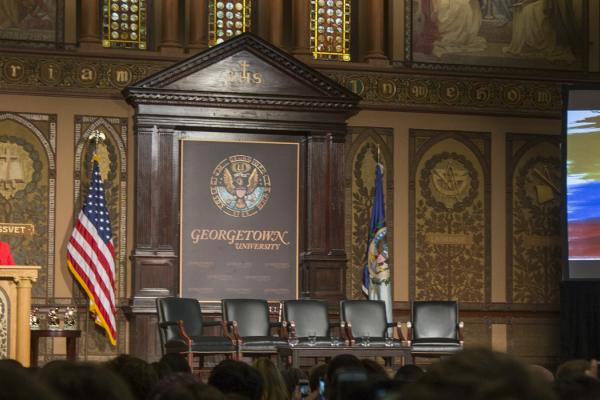Apr 6, 2017
Most of Hillary’s speech was spent using empirical evidence to present a consistent, classic message: Including women in peace processes is strategic and necessary. It isn’t flashy, and it isn’t new — much of Clinton’s career has been dedicated to advocating for international women’s rights. Her message emphasized that having women at the table is pragmatic in any sustainable peace process.
Read the Full Article

Already a subscriber? Login
